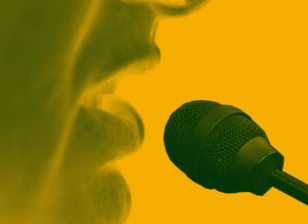Journos decry decline
 Australia’s media union says journalists are being hampered by defamation laws, suppression orders and national security laws.
Australia’s media union says journalists are being hampered by defamation laws, suppression orders and national security laws.
A survey by the Media, Entertainment and Arts Alliance (MEAA) has found most Australian journalists believe freedom of the press is in decline.
Tt found that that over 70 per cent of respondents believe the overall health of press freedom in Australia is “poor” or “very poor”, while over 90 per cent say press freedom has got worse over the past decade.
Asked to provide a ranking of the health of current press freedom issues, almost a quarter of participants (24 per cent) nominated funding for public broadcasting as their greatest concern, followed by a lack of diversity of media ownership (16 per cent) and government secrecy (13 per cent).
“Clearly, media consumers are worried that the significant cuts to the funding of the ABC and SBS over the past half-a-decade has had an impact on press freedom, while the takeover of Fairfax Media by Nine Entertainment has lessened media diversity in Australia,” said MEAA chief executive Paul Murphy.
Journalists were also asked specific questions about their own personal experiences.
Eighty per cent said Australia’s defamation laws made reporting more difficult and 10 per cent had received a defamation writ in the past two years.
Twenty-eight per cent of journalists said they had a news story spiked within the past 12 months because of fears of defamation action.
Court suppression/non-publication orders are a growing issue for journalists. Slightly under a quarter of all journalists said their work had been hindered by an order in the past 12 months.
Of these, 56 per cent of respondents said they believed the court’s decision was excessive. Overall, 54 per cent of journalists believed that judges are actively discouraging reporting of open courts and are taking a more aggressive view of media reporting.
A third of journalists said information from a confidential source whose identity they had protected had led to the publication or broadcasting of a news story but only 8 per cent believed legislation was adequate to protect public sector and private sector whistleblowers.
“Urgent reform is needed to both defamation laws and the suppression order regime to bring them up to date for the 21st century,” Mr Murphy said.
“Australia’s defamation laws are among the most onerous in the western world and journalists in Australia are bound by restrictions which are inexplicable to those in other countries, where free speech protections are designed to enforce the public’s right to know.
“Suppression orders are being applied excessively and in any event are not fit for purpose in an environment of borderless digital publishing.
“Along with the chilling effect of national security laws, it means that Australians are often being kept in the dark about matters of significant public interest.”







 Print
Print